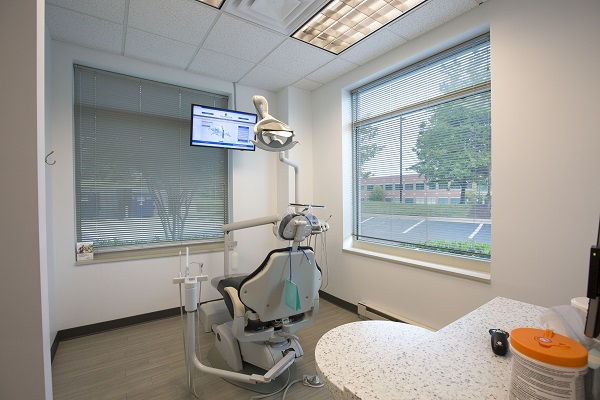A General Dentist in Sterling Explains Plaque and What it Does to Teeth

You may have heard from your general dentist about the problems that plaque can cause for your teeth. Every time that you eat, you are leaving food particles on your teeth that can allow bacteria to form. The good news is that there are ways to reduce the buildup of plaque on your teeth. Read on to learn more about what plaque is and what it can do to your teeth.
What is plaque?
Plaque is a film that builds up on the teeth and it is soft and sticky. It contains millions of bacteria, which can cause decay for a patient’s teeth. This bacteria can also cause gum disease if it is not regularly removed by flossing and brushing.
The bacteria can eat away at the enamel of the patient’s teeth because it uses the sugars from food particles to produce acids. The acids will gradually eat away at the enamel, which can eventually result in a hole, or cavity, on the surface of the tooth.
What if plaque is not removed?
A patient needs to remove plaque from the teeth each day from brushing and flossing. If the plaque is not removed, it can harden and become a substance known as tartar. Once tartar has formed, it becomes extremely difficult to properly brush the teeth. The tartar cannot be removed at home. A general dentist must remove this tartar.
Because the tartar prevents the patient from properly cleaning their teeth, the gum tissue can become infected. This is known as an early stage of gum disease and it can cause the patient’s teeth to bleed when brushed or flossed. The good news is that the early stages of gum disease can easily be reversed. A general dentist can remove the tartar and plaque from the teeth. The patient can then continue to brush and floss regularly.
On the other hand, if gum disease is not treated, it can become periodontitis. This is a severe form of gum disease that can eventually lead to tooth loss. The bacteria cause the gums to become infected. This leads to the jawbone and gums beginning to break down and the patient’s gums can begin to recede as they pull away from the teeth.
Preventing plaque
To remove plaque from the teeth, patients should brush at least twice a day and even after every meal. A general dentist can show the patient the right way to brush and floss the teeth to ensure that all of the harmful substances will be removed.
Visit a general dentist today
Plaque is a problem for patients. If it is not removed, then the patient may experience gum disease, cavities and even tooth loss. However, visiting a general dentist will allow your plaque to be removed quickly and efficiently. Depending on your oral history, your general dentist will be able to tell you how often you need to come in for regular cleanings and exams.
Request an appointment here: https://www.titandentalcare.com or call Titan Dental Care at (703) 745-3227 for an appointment in our Sterling office.
Check out what others are saying about our services on Yelp: Read our Yelp reviews.
Related Posts
Choosing a general dentist to straighten your teeth is a great idea. General dentists are primary care dental providers, which means they understand everything there is to know about diagnosing, treating, and managing their patients' oral health. This type of dentist is the first dentist you would make an appointment with when experiencing any dental…
General dentistry consists of a lot of routine oral health care, which also happens to include restoring teeth that are in bad shape due to damage. Common damage may include cracks, chips, or cavities, all of which can be addressed with the help of different dental restorations. Continue reading to find out what dental restoration…
One of the most common dental procedures that general dentists offer is a dental bridge. This is a method of teeth replacement that replaces one missing tooth or a section of missing teeth. A dental bridge most notably addresses a cosmetic concern, but it may offer functional and oral health benefits as well. It is helpful…
Have you ever suffered from an injury that left your teeth in pain? How do you know if you have an injured tooth? How can it be fixed? An injured tooth doesn’t have to be the end of the world, even though there are some instances where it can be fatal. Keep your teeth healthy…


